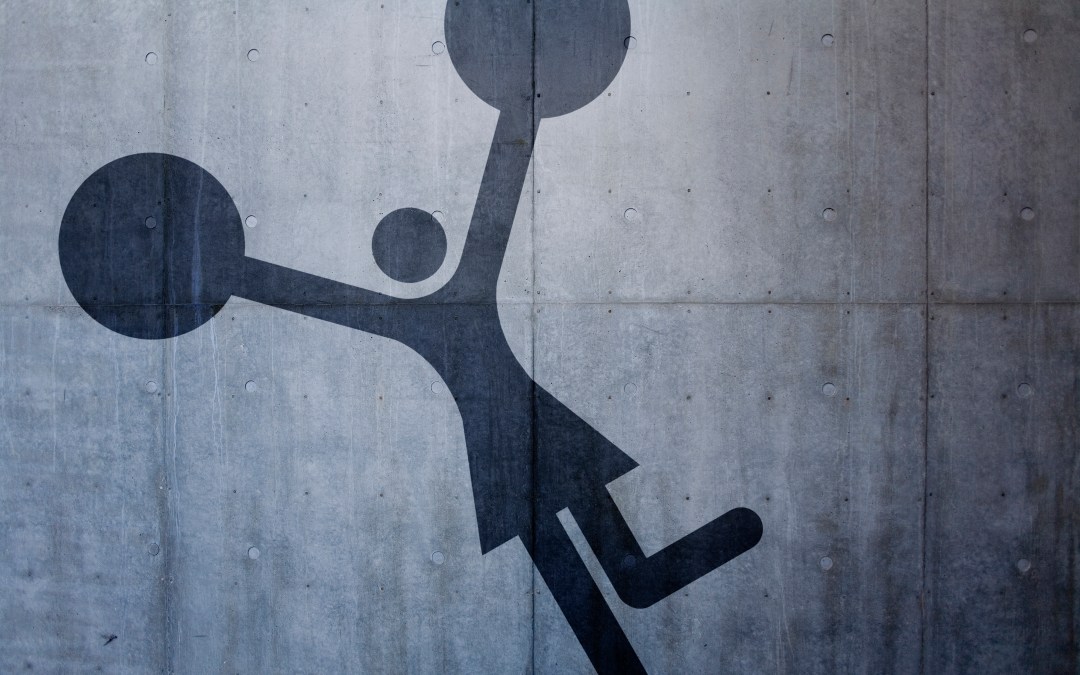Confidence: seeing yourself through the eyes of others
When another person has faith in our abilities, it transforms our confidence and our potential to succeed, writes Rosie Ifould

Daniel Kish could ride a bike by the time he was six. On its own, that doesn’t sound very remarkable, but Daniel Kish had been blind since he was a toddler. Born with retinoblastoma, an aggressive form of cancer, Kish’s doctors removed both his eyes before he was two. He’s now a campaigner and a pioneer of ‘echolocation’ – using sound to ‘see’ the world.
In talks he describes how he woke up from the surgery, having lost his sight, climbed out of his crib and began walking around the intensive care nursery. At home he would climb fences and career down the road on his bike, crashing into things. The neighbours were apparently outraged – how could his mother let him do such dangerous things? But his mother says that all she could think to reply was, ‘How could I not?’
She knew it was dangerous, but Paulette Kish had faith in her son. We often talk about the ‘weight’ or ‘pressure’ of expectation. The attitudes and assumptions other people make about us lie heavily on our shoulders. We’re encouraged to manage our expectations of others, in case they end up disappointing us. Low expectations, we’re told, are the key to happiness.
Faith can move mountains
But what if there’s a flip side? What if the power of other people’s expectations can be positive? What if someone else’s faith in us is actually the force that enables us to do better – even if we’re not really aware of it?
In the 1960s, two psychologists, Robert Rosenthal and Lenore Jacobson, wanted an answer to that question. To test the idea that positive expectations matter, they divided a class of schoolchildren into two groups and told their teachers that, according to tests, group A was about to have an intellectual growth spurt. By the end of the year, the children in the ‘gifted’ group A were doing significantly better in class. But, in fact, there had been no difference between them and the children in group B. The only special thing about them was that their teachers believed they were special.
The teachers didn’t know but, because they expected the group A children to succeed, they treated them differently. They gave them more opportunities to speak out in class. They gave them more informative feedback about their work. They responded to them more warmly – they changed the ‘emotional climate’ of their classroom. In countless tiny ways, the attitudes of those teachers made a huge difference to the lives of the children in their care.
Of course, these things matter a great deal when we are young. We all know the effect that one good – or bad – teacher can have on our confidence. But other people’s expectations matter just as much when we’re adults.
‘I was never confident as a child. In our family, my brother was the clever one and I was the good one,’ says Carla*, a marketing manager. ‘It really affected me when I began working. I definitely had imposter syndrome. But then I changed departments and got a new boss, and she was incredible. She didn’t go in for big pep talks or anything like that but, right from the start, she talked to me like I was someone who mattered to the company. She included me in decisionmaking. She gave me responsibility. And I thought, “If she thinks I can do it, maybe I can.” I still got stressed, but just having the belief that I could do it brought about a difference.’
Carla’s boss made one of her key employees happier and, most likely, more productive, and she did it without even being conscious of the difference she was making. ‘I asked her recently why she was so kind to me when I first started? And she said it wasn’t about being kind. She just thought I was clever and competent, so she treated me that way.’
There are positive benefits for both parties – that warm ‘emotional climate’ that Rosenthal and Jacobson found in their teacher experiment is good for both teacher and pupil. Carla worked harder and earned the company more money. After we spoke, she sent me a quote she’d heard from someone at Pixar: ‘We start from the presumption that our people are talented and want to contribute.’ Just imagine that…
Give praise where it’s due
There is a catch. It’s a powerful thing to believe in the best of somebody, but it’s not easy to fake. It’s not just about offering scattergun praise in the hope that something useful will find a target. In fact, as the psychologist Carole Dweck points out in her book, Mindset (Little, Brown,£10.99), praise that isn’t earned, or is offered for the wrong reasons, can be just as damaging as criticism. Perhaps the first step is not active praise, but a re-examination of our own attitudes.
How do you feel about the people you work with, your friends, your family? Are there people in your life that you struggle to be supportive of? Can you remember times when you have been surprised by someone else’s success, and why you were surprised? Do you know anyone who is a brilliant champion of other people, and what do they do differently?
Questioning belief systems
‘A few years ago, I decided to give up my job in the city and become a chef,’ says Sophie*. ‘I only told a few people and most of them were quick to point out the negatives – it would be poor pay, a lot of job insecurity and I could see that many of them were thinking, “Does she really think she’s talented enough?” I was beginning to think they were right, that I shouldn’t hand in my notice, then I confided in an old friend from school, Mel. She just said, “Oh, thank God! I’ve been waiting for years to be able to boast about you to everyone I know.” In that moment, I saw myself through Mel’s eyes and it was such a confidence-booster.’
Three years later, Sophie is about to launch her own catering business, and says she still thinks of Mel every time she has a tough day. ‘But the thing is, I don’t know if I’d have been able to do the same thing for her. I worry a lot about what could go wrong. I probably would have said to myself, “Do you really think you can make it?” rather than, “That’s brilliant! Go for it!”’
If she’d had to decide for herself, Sophie probably would have talked herself out of her big career change. If Carla had been left with her own thoughts, she might have floundered at work. And, if I had been left to my own devices, I may not have run my first half-marathon last year – I didn’t think I was sporty enough, but my husband took me to buy a new pair of trainers and talked to me about training schedules, and never once did he even hint that he thought I might not be fit enough. I managed a personal best.
It’s fantastic when we’re able to be our own loudest cheerleader, but there are times when it’s even more powerful to have someone else standing beside us, telling us, ‘You can do it.’
*names have been changed.
Photograph: iStock








